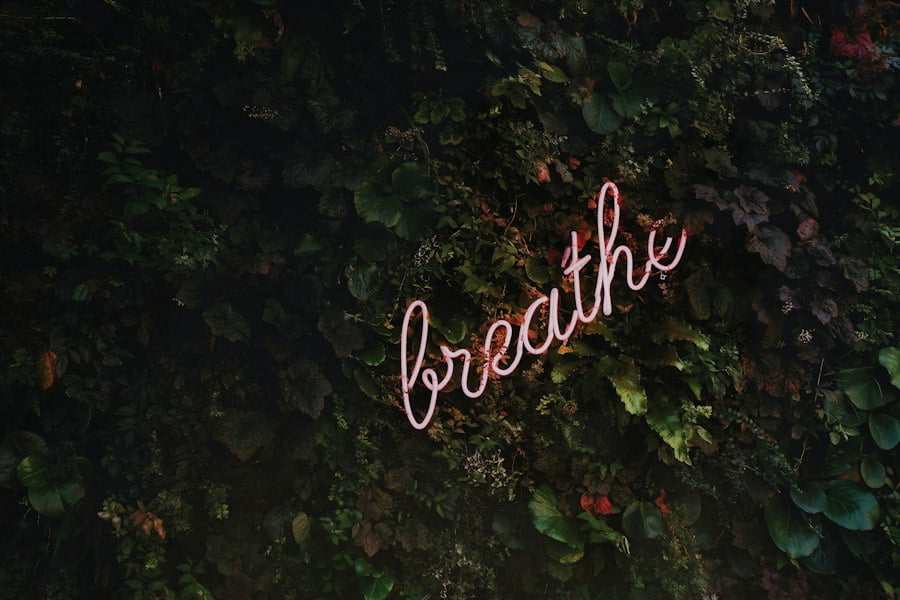
The Healing Power of Mental Health Retreats: How Taking Time for Yourself Can Improve Your Well-Being
In today’s fast-paced and stressful world, taking care of our mental health has become more important than ever. Mental health retreats have emerged as a popular and effective way to prioritize self-care and well-being. These retreats offer individuals the opportunity to step away from their daily routines and immerse themselves in a supportive and nurturing environment. In this article, we will explore the concept of mental health retreats, their benefits, and how they can improve overall well-being.
Key Takeaways
- Mental health retreats provide a safe and supportive environment for individuals to focus on their mental health and well-being.
- Benefits of mental health retreats include reduced stress and anxiety, improved mood, and increased self-awareness and personal growth.
- Mental health retreats can also have positive effects on physical health, such as improved sleep and immune function.
- Mindfulness practices, such as meditation and yoga, are often incorporated into mental health retreats and can help individuals manage their emotions and improve their mental health.
- The science behind mental health retreats supports their effectiveness in improving mental health outcomes, and there are various types of retreats available to suit individual needs and preferences.
Defining Mental Health Retreats
Mental health retreats are structured programs that provide individuals with a safe and supportive environment to focus on their mental well-being. These retreats typically involve a combination of therapeutic activities, mindfulness practices, and self-reflection exercises. The goal is to help participants gain a deeper understanding of themselves, develop coping strategies for stress and anxiety, and learn tools for maintaining mental well-being in their everyday lives.
There are various types of mental health retreats available, each catering to different needs and preferences. Some retreats focus on specific therapeutic modalities such as cognitive-behavioral therapy or mindfulness-based stress reduction. Others may incorporate activities like yoga, meditation, or art therapy. Some retreats are held in serene natural settings, while others may take place in urban centers. The diversity of options allows individuals to choose a retreat that aligns with their personal goals and interests.
The Benefits of Mental Health Retreats
Mental health retreats offer a wide range of benefits for participants. One of the most significant advantages is stress reduction. By stepping away from the demands of daily life and immersing themselves in a peaceful environment, individuals can experience a significant reduction in stress levels. This break from routine allows the mind to relax and recharge, leading to improved overall well-being.
In addition to stress reduction, mental health retreats can also improve mood and emotional well-being. Through therapeutic activities and self-reflection exercises, participants can gain a deeper understanding of their emotions and learn healthy ways to manage them. This increased self-awareness can lead to improved emotional regulation and a greater sense of happiness and contentment.
Furthermore, mental health retreats provide individuals with an opportunity to connect with others who may be facing similar challenges. This sense of community and support can be incredibly empowering and validating. Participants often form lasting friendships and support networks that continue long after the retreat has ended.
Mental Health Retreats and Physical Health
| Retreat Name | Location | Duration | Cost | Number of Participants | Physical Activities Offered | Mental Health Services Offered |
|---|---|---|---|---|---|---|
| Peaceful Mind Retreat | California, USA | 7 days | 2,500 | 10 | Hiking, Yoga, Swimming | Meditation, Therapy Sessions |
| Healthy Body & Mind Retreat | Costa Rica | 10 days | 3,500 | 15 | Surfing, Kayaking, Beach Volleyball | Group Therapy, Mindfulness Workshops |
| Rejuvenate Your Soul Retreat | Bali, Indonesia | 14 days | 5,000 | 20 | Yoga, Pilates, Cycling | Individual Counseling, Art Therapy |
It is well-established that mental health and physical health are closely interconnected. When we neglect our mental well-being, it can have a negative impact on our physical health, and vice versa. Mental health retreats recognize this connection and often incorporate activities that promote physical well-being.
For example, many retreats offer opportunities for exercise such as yoga or hiking. Physical activity has been shown to have numerous benefits for mental health, including reducing symptoms of anxiety and depression, improving sleep quality, and boosting overall mood. By engaging in physical activity during a mental health retreat, participants can experience these benefits firsthand.
Additionally, mental health retreats often emphasize healthy eating habits. Proper nutrition plays a crucial role in maintaining both mental and physical well-being. By providing nutritious meals and educating participants about healthy eating habits, retreats can help individuals develop a healthier relationship with food and improve their overall well-being.
The Role of Mindfulness in Mental Health Retreats
Mindfulness is a key component of many mental health retreats. It involves paying attention to the present moment without judgment, allowing individuals to cultivate a greater sense of awareness and acceptance. Mindfulness practices such as meditation or mindful movement can help individuals manage stress, reduce anxiety, and improve overall well-being.
During a mental health retreat, participants are often introduced to various mindfulness techniques and given the opportunity to practice them in a supportive environment. These practices can help individuals develop a greater sense of self-awareness and learn to respond to stressors in a more mindful and intentional way. By incorporating mindfulness into their daily lives, individuals can experience long-lasting benefits for their mental well-being.
The Science Behind Mental Health Retreats

The effectiveness of mental health retreats is supported by scientific research. Numerous studies have shown that participating in a retreat can lead to significant improvements in mental health outcomes. For example, a study published in the Journal of Alternative and Complementary Medicine found that individuals who attended a mindfulness-based retreat experienced reductions in symptoms of anxiety and depression, as well as improvements in overall well-being.
Another study published in the Journal of Clinical Psychology found that participants who attended a cognitive-behavioral therapy retreat reported significant reductions in symptoms of post-traumatic stress disorder (PTSD) and improved quality of life. These findings highlight the potential benefits of mental health retreats for individuals struggling with specific mental health conditions.
Types of Mental Health Retreats
There are various types of mental health retreats available, each offering unique benefits and experiences. Yoga retreats, for example, combine physical movement with mindfulness practices to promote overall well-being. These retreats often take place in serene natural settings and provide participants with an opportunity to deepen their yoga practice while also focusing on their mental health.
Meditation retreats, on the other hand, are centered around the practice of meditation. These retreats offer individuals the opportunity to immerse themselves in a silent and contemplative environment, allowing for deep introspection and self-reflection. Meditation retreats can be particularly beneficial for individuals looking to cultivate a greater sense of inner peace and clarity.
Wilderness retreats are another type of mental health retreat that focuses on connecting with nature. These retreats often involve activities such as hiking, camping, or wilderness therapy. The natural environment provides a healing and grounding space for participants to reconnect with themselves and gain perspective on their lives.
Choosing the Right Mental Health Retreat for You
When choosing a mental health retreat, it is important to consider individual needs and preferences. Location is one factor to consider, as some individuals may prefer a retreat in a serene natural setting, while others may prefer an urban environment. Cost is another consideration, as retreats can vary widely in price. It is also important to consider the type of retreat and the specific activities and therapies offered.
Researching different retreat options and reading reviews from past participants can be helpful in making an informed decision. It may also be beneficial to reach out to the retreat organizers or facilitators to ask any questions or express specific concerns or needs. By taking the time to choose the right mental health retreat, individuals can maximize their experience and ensure that it aligns with their goals and expectations.
Preparing for a Mental Health Retreat
Preparing for a mental health retreat involves both practical and emotional considerations. It is important to pack essentials such as comfortable clothing, toiletries, and any necessary medications. It may also be helpful to bring items that promote relaxation and self-care, such as a journal, a favorite book, or a comforting blanket.
Setting intentions for the retreat can also be beneficial. This involves reflecting on what you hope to gain from the experience and what specific goals or areas of focus you have. By setting intentions, you can approach the retreat with a sense of purpose and direction.
It is also important to approach the retreat with an open mind and a willingness to try new things. Mental health retreats often involve activities or therapies that may be unfamiliar or outside of your comfort zone. Embracing these new experiences can lead to personal growth and transformation.
The Lasting Effects of Mental Health Retreats on Your Well-Being
In conclusion, mental health retreats offer individuals a unique opportunity to prioritize their well-being and focus on their mental health. These retreats provide a supportive and nurturing environment for individuals to relax, reflect, and learn tools for maintaining mental well-being in their everyday lives.
The benefits of mental health retreats are numerous and far-reaching. From stress reduction and improved mood to increased self-awareness and a sense of community, these retreats can have a lasting impact on overall well-being. By incorporating mindfulness practices, physical activity, and therapeutic modalities, mental health retreats address the interconnectedness of mental and physical health.
If you are considering attending a mental health retreat, take the time to research different options and choose one that aligns with your needs and preferences. Prepare for the retreat by packing essentials and setting intentions. Approach the experience with an open mind and a willingness to try new things.
By prioritizing your mental well-being through a mental health retreat, you can experience profound personal growth and transformation that will positively impact all areas of your life.
FAQs
What is a mental health retreat?
A mental health retreat is a program or facility that provides a safe and supportive environment for individuals to focus on their mental health and well-being. It typically involves a combination of therapy, mindfulness practices, and other activities aimed at improving mental health.
What are the benefits of attending a mental health retreat?
Attending a mental health retreat can provide a range of benefits, including improved mental health and well-being, reduced stress and anxiety, increased self-awareness, improved coping skills, and a greater sense of connection with others.
Who can benefit from attending a mental health retreat?
Anyone who is struggling with mental health issues or looking to improve their overall well-being can benefit from attending a mental health retreat. This includes individuals with anxiety, depression, trauma, addiction, and other mental health concerns.
What types of activities are typically offered at a mental health retreat?
Activities offered at a mental health retreat can vary depending on the program or facility, but may include therapy sessions, mindfulness practices such as meditation and yoga, outdoor activities such as hiking and nature walks, and creative activities such as art therapy and journaling.
How long do mental health retreats typically last?
The length of a mental health retreat can vary depending on the program or facility, but may range from a few days to several weeks. Some retreats may also offer ongoing support and follow-up care after the initial program has ended.
Are mental health retreats covered by insurance?
In some cases, mental health retreats may be covered by insurance, but this can vary depending on the individual’s insurance plan and the specific program or facility. It is important to check with your insurance provider to determine what coverage may be available.


















